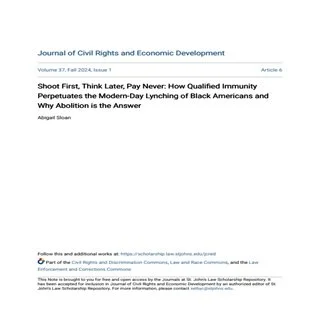Against Excessive Use of Force and Other Human Rights Violations by Law Enforcement Officers Through Transformative Change for Racial Justice and Equality
Report of the United Nations High Commissioner for Human Rights
Pursuant to Human Rights Council resolution 47/21, in the present report, the United Nations High Commissioner for Human Rights examines calls for reparatory justice presented in his agenda towards transformative change for racial justice and equality, building on recommendations by the Secretary-General and United Nations human rights mechanisms. The High Commissioner highlights the role of States and others in confronting legacies of enslavement, the trade in enslaved Africans and colonialism, including dismantling structures and systems that perpetuate systemic racism at all levels. The High Commissioner reaffirms that reparatory justice requires a multi-pronged approach that is context-specific, intersectional, grounded in international human rights law and designed through meaningful consultation with and the participation of people of African descent. Building a reparatory justice momentum requires mobilizing all of society, the creation and reinforcement of existing networks and solidarity across equality movements. The High Commissioner calls for renewed leadership and vision, through creative, effective and comprehensive reparatory justice responses, as a critical component of dismantling systemic racism.
United Nations, 2025. 18p





